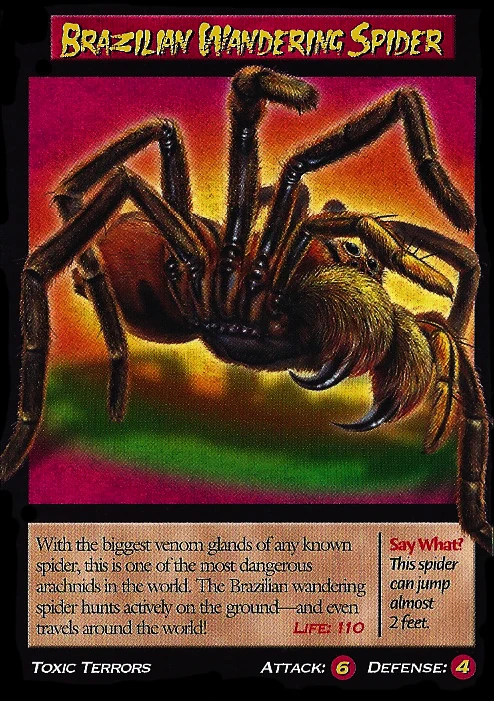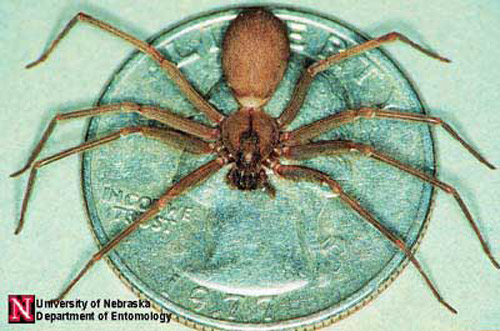The Brazilian Wandering spider is also known as the Banana spider. Its venom contains serotonin, making the bite extremely painful, and neurotoxins, which cause paralysis and death. Its bite is more likely to kill a child, due to their smaller size.
The Brazilian Wandering spider can be up to two inches long, with a six inch leg span. They are hairy, mostly brown, and have a black spot on their stomachs. They are considered the 9th largest spider in the world. To eat, they actively hunt insects, spiders, small amphibians, small reptiles, and mice. They’re nocturnal hunters on the forest floors of Brazil.
As a warning, they will raise their first two pairs of legs. This is to tell you that they are prepared to attack. Brazilian Wandering spiders only attack in self defense, whether provoked purposely or accidentally.
When a person is bitten, they will experience burning pain at the injection site, sweating, at goosebumps. Within 30 minutes, there is high or low blood pressure, fast or a slow heartbeat, nausea, abdominal cramping, hypothermia, vertigo, blurred vision, convulsions and excessive sweating associated with shock. Medical help should be obtained immediately.
Luckily, most bites do not contain enough venom to require the antivenin. Only 2.3% of bites have required its use.
The females are larger than the males, and there is mating dances (and often fights between males) to impress the female. Often, the female attacks the male after they do the do.













